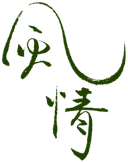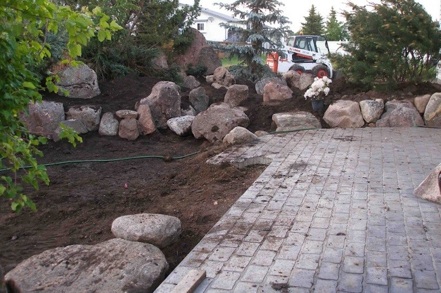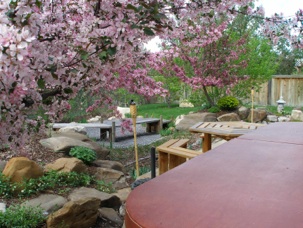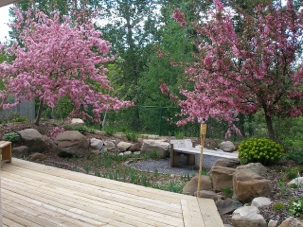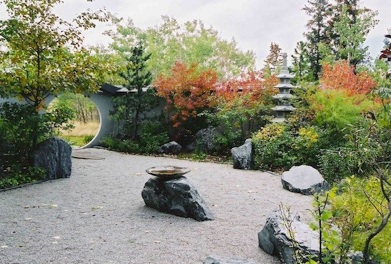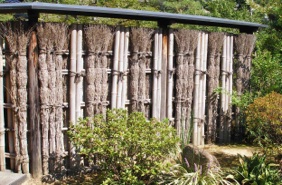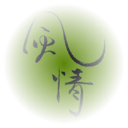Fuzei Value:
**Environmentally sensitive, eco-friendly recycling, reusing & repurposing. In Japanese: ‘mitate-mono’,
by example, maximizing natural resources: fine twigs and branches are chipped for mulch, and trunks are re-used for tea house ‘tokonoma’ posts, windows and sleeve fences ‘sode-gaki’.

* As another evolved example, Niwa Magazine recently showed a photograph wherein a metal brake-drum was used as the end piece of a clay tiled dobei (mud) wall. In Nelson B.C., Izushi, Jim Sawada built the entry gate with joinery, nail protector medallions made of plumbing reducers.
and we are always seeking ways to improve on what has been done before.

